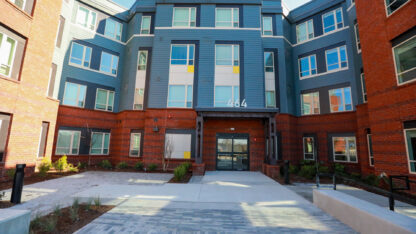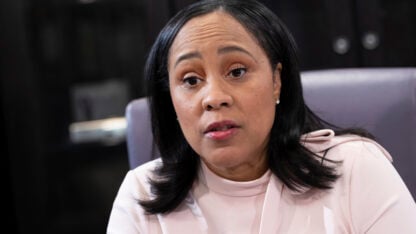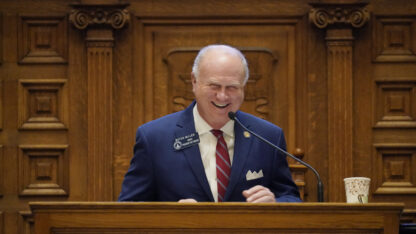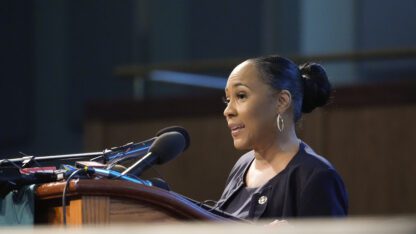Google Working Toward Expanding Fiber Network

Faster than a speeding bullet.
Google claims its Fiber network is much quicker than most internet connections.
“The average internet speed in America today is 9.8 megabits per second, and Google Fiber would bring a connection that’s over 100 times faster than that, up to 1,000 megabits per second into homes that are in our new Fiber cities,” says Google spokeswoman Jenna Wandres.
So far, Fiber is in two U.S. cities, including Kansas City.
“It’s been pretty fantastic. The only caveat for that is your mileage may vary. Google Fiber is too fast for the internet in general,” says Ben Barreth, the founder of Homes for Hackers.
His company is part of the Kansas City Startup Village. The two-year-old Village hopes Google Fiber helps lure entrepreneurs and start-up businesses to Kansas City.
Other internet service providers use copper wiring to send and receive data. Google Fiber uses fiber optic cables, which are built for faster speeds.
That’s why Google claims people with Fiber in their technological diets can download videos, access websites and watch television at higher speeds than its competition.
An audio version of this story.
The cost of Google Fiber varies. For example, in Kansas City it’s $120 for Gigabit and TV, $70 for just the internet or free internet service, if customers pay a $300 construction fee.
“You’ll find people who have signed up for Google Fiber who say ‘Well, I’m disappointed because, you know, I dumped Time Warner and now I can’t get AMC,’ which is a very popular cable channel. Other people don’t quite like the interface as much. But you’ll also find a lot of people who are happy with Google Fiber’s customer service……they like their connectivity,” says Scott Canon, a reporter/editor for the Kansas City Star.
Although opinions have varied, Canon says Google Fiber is turning heads.
“It’s a little bit ‘Field of Dreams’…..build it and they will come. But they’re still building it.”
According to Canon, Google started building Fiber in Kansas City because officials there agreed to fast-track work permits. The physical layout of the area was also conducive to hanging wires.
That appears to also be the case for Provo, Utah, which also has Google Fiber. Chances are Austin, Texas is next on the list.
Google officials say they hope to expand Fiber to 36 cities before next year. Nine of those locations earmarked are in Georgia: Atlanta, Avondale Estates, Brookhaven, College Park, Decatur, East Point, Hapeville, Sandy Springs and Smyrna.
That could help Mayor Kasim Reed’s push to make metro Atlanta more attractive to the tech businesses.
“Financial companies, health care companies, technology companies…..they need access to the internet, they need to transmit data. It’s not just the internet, it’s transferring data from one place to the other. So they’re going to see a significant boost in their productivity,” says Urvaksh Karkaria, a tech reporter for the Atlanta Business Chronicle.
Of course, Google will also benefit from Fiber usage.
“If I’m able to provide people with faster internet connections, customers are more likely to use the internet, use Google as a search engine to find things on the internet,” says Karkaria.
While Google has become much more than just an internet search engine, search is still the company’s big money-maker, because of ad revenue.
Google officials were tight-lipped about how much it is spending to implement Fiber. But one analyst, Neal Lachman, estimates it would cost at least $150 billion dollars to connect every U.S. home and business to Fiber.
Lachman was also skeptical Google would make what he calls “a massive in the communications industry.”
Google will announce the next Fiber cities later this year. However, officials in Brookhaven and College Park jumped the gun by saying they had already been confirmed. Both cities quickly issued “clarifications” saying they were still under consideration.
9(MDAxODM0MDY4MDEyMTY4NDA3MzI3YjkzMw004))








